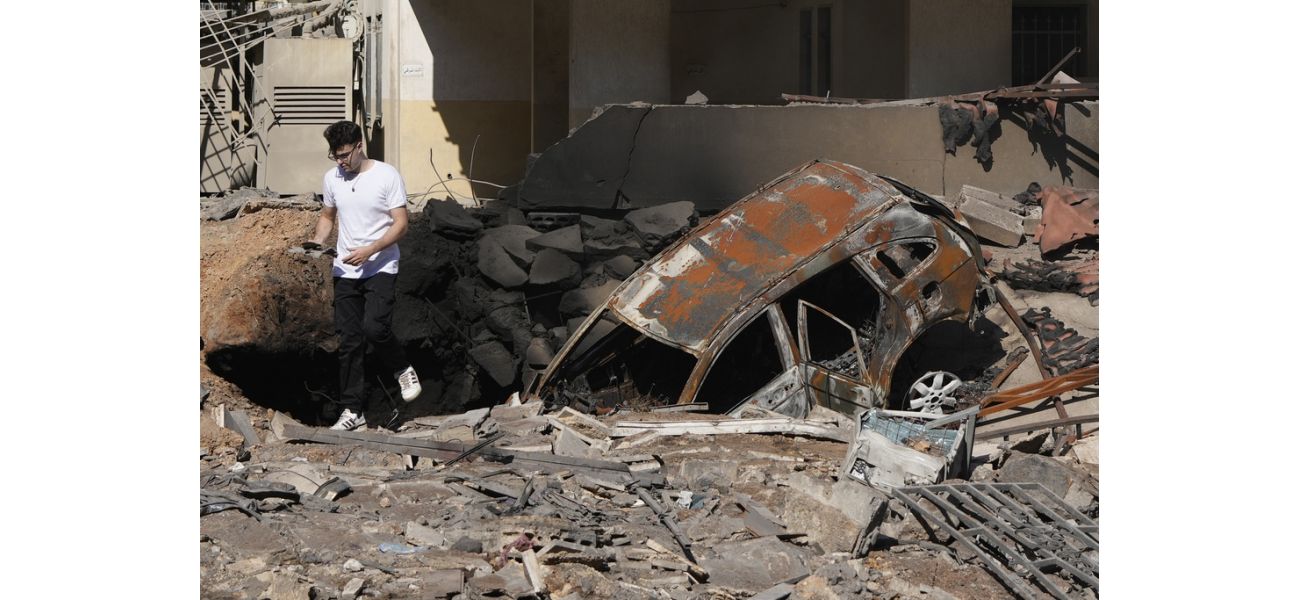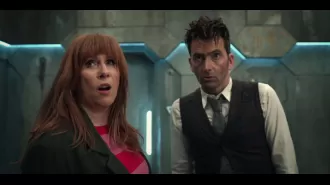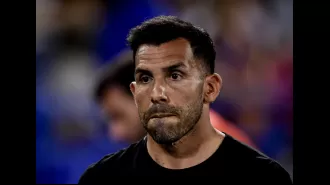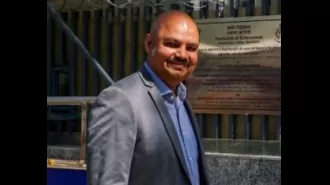Hezbollah has confirmed that another one of its top commanders has been killed in Israeli airstrikes, marking the seventh such death in recent years.
Lebanese militant group suffers major losses and leader's death.
September 29th 2024.

Another blow has been dealt to Hezbollah as the Israeli military has killed yet another senior leader in an airstrike. Nabil Kaouk, the deputy head of Hezbollah's Central Council, was the latest casualty in a string of targeted strikes that have left the militant group reeling. This comes on the heels of the killing of their overall leader, Hassan Nasrallah, sending shockwaves through the organization.
The Israeli military confirmed that Kaouk was killed on Saturday, making him the seventh senior Hezbollah leader to be slain in just over a week. These targeted strikes have not only taken out top leaders, but also founding members who had managed to evade death for decades. It is clear that Israel is strategically targeting key figures within Hezbollah, causing significant damage to the group's infrastructure.
In response to Kaouk's death, Hezbollah confirmed his passing and also announced that another senior commander, Ali Karaki, was killed in a strike on Friday that also took out Nasrallah. The Israeli military had previously reported that Karaki was killed in an airstrike targeting an underground compound in Beirut where Nasrallah and other top Hezbollah members were meeting. The strike also claimed the lives of at least 20 other Hezbollah militants, including two close associates of Nasrallah.
But the attacks on Hezbollah do not stop there. The Israeli military carried out another targeted strike on Beirut on Sunday, with more details to follow. This attack comes after a recent sophisticated attack on Hezbollah's communication systems, which was widely attributed to Israel. As a result of these relentless attacks, Lebanon has seen over 1,030 casualties, including 156 women and 87 children, in less than two weeks.
The situation has become dire for the people of Lebanon, with hundreds of thousands being forced to flee their homes due to the airstrikes. Many are seeking shelter in designated locations, but others are relying on the kindness of friends and family, or simply taking to the streets. The Lebanese government estimates that there are about 250,000 people in shelters, with an additional three to four times that number finding refuge elsewhere.
Meanwhile, Hezbollah has continued to retaliate by firing rockets and missiles into northern Israel, but most have been intercepted or landed in open areas. So far, no Israeli casualties have been reported since the targeted strikes on top Hezbollah leaders began on September 20. Kaouk, who had been a member of Hezbollah since the 1980s and served as their military commander during the 2006 war with Israel, was a well-known figure in local media and often gave commentary on political and security developments.
Hezbollah and Hamas, who are allies and part of the Iran-backed "Axis of Resistance" against Israel, have been locked in a conflict with Israel since Hamas' attack on October 7. In response, Israel has launched numerous airstrikes, causing the situation to escalate to the brink of all-out war. This has raised concerns of a larger conflict engulfing the entire region.
Amidst all this chaos, Israel has made it clear that they are determined to return their citizens to communities in the north that were evacuated nearly a year ago. However, Hezbollah has stated that they will only cease their rocket attacks if there is a ceasefire in Gaza, which has yet to be achieved despite months of negotiations. With tensions at an all-time high, the situation in the Middle East remains volatile and unpredictable.
The Israeli military confirmed that Kaouk was killed on Saturday, making him the seventh senior Hezbollah leader to be slain in just over a week. These targeted strikes have not only taken out top leaders, but also founding members who had managed to evade death for decades. It is clear that Israel is strategically targeting key figures within Hezbollah, causing significant damage to the group's infrastructure.
In response to Kaouk's death, Hezbollah confirmed his passing and also announced that another senior commander, Ali Karaki, was killed in a strike on Friday that also took out Nasrallah. The Israeli military had previously reported that Karaki was killed in an airstrike targeting an underground compound in Beirut where Nasrallah and other top Hezbollah members were meeting. The strike also claimed the lives of at least 20 other Hezbollah militants, including two close associates of Nasrallah.
But the attacks on Hezbollah do not stop there. The Israeli military carried out another targeted strike on Beirut on Sunday, with more details to follow. This attack comes after a recent sophisticated attack on Hezbollah's communication systems, which was widely attributed to Israel. As a result of these relentless attacks, Lebanon has seen over 1,030 casualties, including 156 women and 87 children, in less than two weeks.
The situation has become dire for the people of Lebanon, with hundreds of thousands being forced to flee their homes due to the airstrikes. Many are seeking shelter in designated locations, but others are relying on the kindness of friends and family, or simply taking to the streets. The Lebanese government estimates that there are about 250,000 people in shelters, with an additional three to four times that number finding refuge elsewhere.
Meanwhile, Hezbollah has continued to retaliate by firing rockets and missiles into northern Israel, but most have been intercepted or landed in open areas. So far, no Israeli casualties have been reported since the targeted strikes on top Hezbollah leaders began on September 20. Kaouk, who had been a member of Hezbollah since the 1980s and served as their military commander during the 2006 war with Israel, was a well-known figure in local media and often gave commentary on political and security developments.
Hezbollah and Hamas, who are allies and part of the Iran-backed "Axis of Resistance" against Israel, have been locked in a conflict with Israel since Hamas' attack on October 7. In response, Israel has launched numerous airstrikes, causing the situation to escalate to the brink of all-out war. This has raised concerns of a larger conflict engulfing the entire region.
Amidst all this chaos, Israel has made it clear that they are determined to return their citizens to communities in the north that were evacuated nearly a year ago. However, Hezbollah has stated that they will only cease their rocket attacks if there is a ceasefire in Gaza, which has yet to be achieved despite months of negotiations. With tensions at an all-time high, the situation in the Middle East remains volatile and unpredictable.
[This article has been trending online recently and has been generated with AI. Your feed is customized.]
[Generative AI is experimental.]
0
0
Submit Comment





